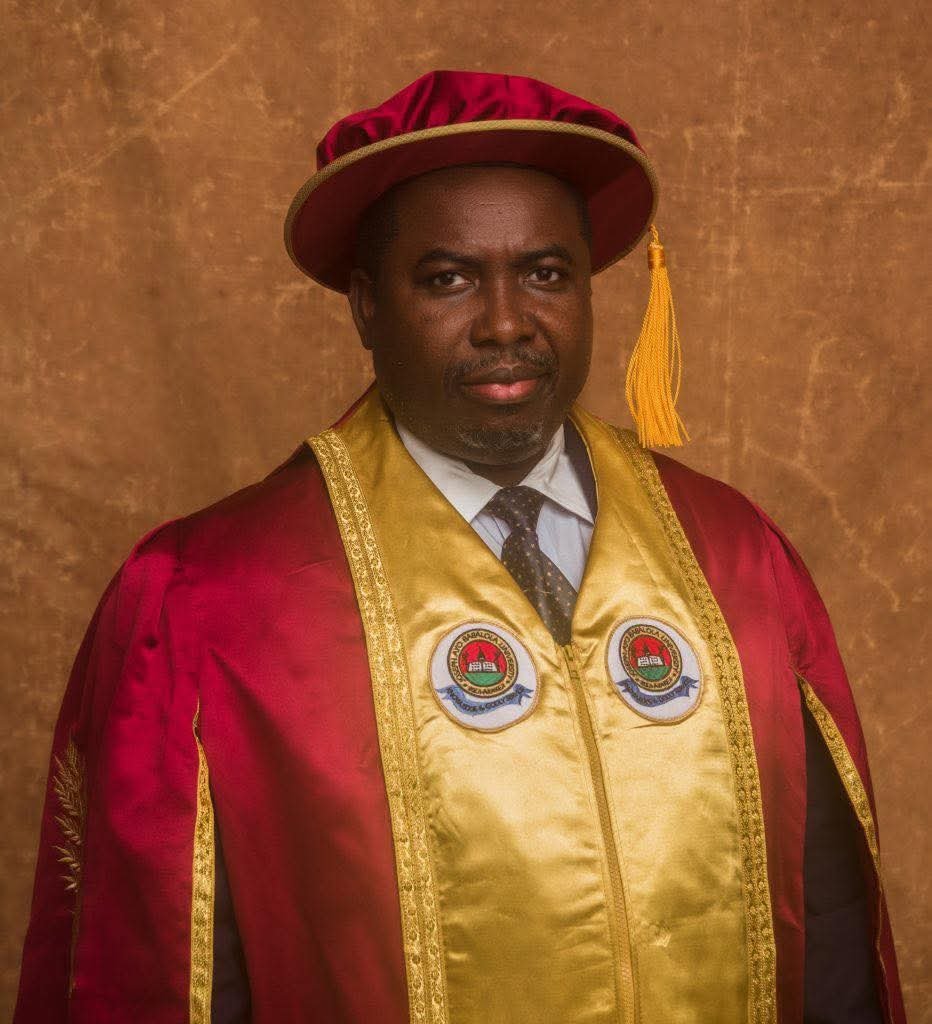
New INEC Chairman, Professor Joash Ojo Amupitan
LAGOS, Nigeria – Nigeria’s governance system faces a defining accountability test as Professor Joash Ojo Amupitan (SAN) takes over as Chairman of the Independent National Electoral Commission (INEC) – an institution central to democratic stability and national development, succeeding Professor Mahmood Yakubu after a turbulent decade marked by voter disillusionment and controversy.
The National Council of State confirmed Amupitan’s appointment on Thursday following President Bola Ahmed Tinubu’s nomination, a decision that has ignited cautious optimism among political watchers ahead of the 2027 general elections.
Amupitan, born in 1967 in Ayetoro Gbede, Kogi State, is a Professor of Law at the University of Jos and one of Nigeria’s most respected legal scholars. A Senior Advocate of Nigeria (SAN) since 2014, his expertise spans Company Law, Corporate Governance, and Constitutional Law — disciplines that underscore his long-standing engagement with issues of institutional accountability.
With over three decades in academia, Amupitan has held senior administrative roles including Dean of Law, Head of Public Law Department, and Deputy Vice-Chancellor (Administration) at UNIJOS. He also serves as Pro-Chancellor of Joseph Ayo Babalola University in Osun State and sits on several corporate and educational boards.
While praised for his intellect and integrity, Amupitan’s earlier remarks have occasionally stirred debate. In a 2016 interview, he asserted that “budget padding is lawful and constitutional,” arguing that the National Assembly possesses legitimate power under Sections 80 and 82 of the Nigerian Constitution to amend appropriation bills.
“As far as the Constitution is concerned, there is nothing here that has been dishonestly or fraudulently done… because they have acted within their legislative powers,” he stated.
Such positions have drawn mixed reactions, with some critics questioning whether his legal realism aligns with the ethical demands of electoral reform.
The Coalition of United Political Parties (CUPP) described the appointment as “a critical juncture in Nigeria’s democratic evolution.” Its National Secretary, Chief Peter Ameh, said Amupitan’s “scholarly depth and understanding of governance could help rebuild INEC’s shattered credibility,” but cautioned that “his greatest challenge lies in restoring trust in an institution still haunted by the ghosts of 2023.”
The 2023 general elections left deep scars — from failed BVAS uploads to irregularities in INEC’s Result Viewing Portal (IReV). Only 25 percent of results were uploaded in real time, a lapse that eroded voter confidence.
As Nigerians prepare for 2027, Amupitan faces the daunting task of proving that law, leadership, and integrity can coexist within an electoral body often accused of compromise.
For many citizens, his appointment symbolises both renewal and reckoning — a chance to rebuild faith in the ballot or confirm fears that INEC remains trapped in a cycle of broken promises.
Analysts say credible elections are critical to policy continuity and investment confidence — both pillars of sustainable health and development outcomes.
With public faith in electoral systems at its lowest since 2019, Amupitan’s stewardship could determine whether Nigeria strengthens democracy as a vehicle for inclusive governance, public accountability, and citizen welfare.



